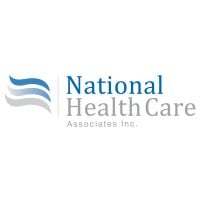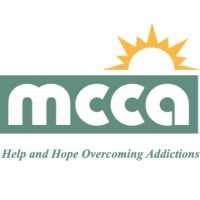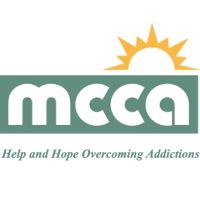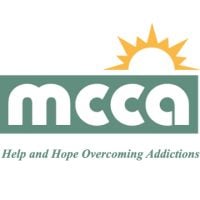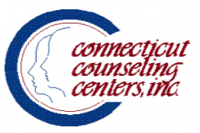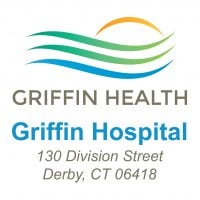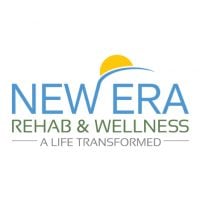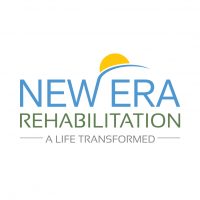Bethel Health Care
Drug Rehab Center in Bethel, Connecticut
Bethel Health Care is a comprehensive addiction treatment facility providing drug rehab services, such as inpatient and outpatient care, to individuals struggling with substance abuse and drug addiction, which may be covered by private health insurance.
About Bethel Health Care in Connecticut
Bethel Health Care in Bethel, Connecticut is a substance abuse and drug addiction treatment facility that offers various levels of care to individuals seeking to overcome their addiction and get sober. Located in Bethel, CT, this facility provides comprehensive drug rehab services to those struggling with substance abuse and drug addiction. Bethel Health Care accepts private health insurance, ensuring that individuals have access to quality treatment without financial barriers.
At Bethel Health Care, individuals suffering from substance abuse and drug addiction can find a range of services and treatments to support their recovery journey. The facility offers both inpatient and outpatient levels of care, allowing individuals to choose the treatment option that best suits their needs. In addition, specialized programs are available to address specific substance abuse concerns and co-occurring mental health disorders. Bethel Health Care combines evidence-based therapies, counseling, and support groups to provide a holistic approach to addiction treatment. With the goal of helping individuals achieve long-term sobriety, Bethel Health Care is committed to providing compassionate and effective care to those in need.
Genders
Ages
Modality
Additional
Conditions and Issues Treated
It’s not easy getting sober on one’s own, or even going to rehab and escaping the grasp of addiction by oneself. Substance abuse treatment gives addicts a place to stay sober while learning what it takes to quit for good. They will learn from others about what works and what doesn’t work with remaining drug-free.
Treatment centers such as Bethel Health Care focus on the needs of individual addicts to heal them. There is a combination of physical and mental therapies that treat the root cause of the addiction, whether it be family problems, stress, or past traumatic events.
The final benefit of substance abuse treatment is introducing new people who can help in your recovery after you leave Bethel Health Care. Through group therapy sessions with other addicts and attending support meetings once a day, a person will learn how to interact with others and cope with cravings. This is a chance for you to rebuild your social circle healthily after you leave treatment.
Levels of Care Offered
This center offers a variety of custom treatment tailored to individual recovery. Currently available are Drug Rehab, Inpatient, Outpatient, with additional therapies available as listed below.
Individuals who are suffering from severe addiction or have a high risk for dangerous health concerns are often recommended to receive inpatient treatment.
Choosing to enter an inpatient treatment program is beneficial for people who are suffering from severe addiction, or who have a high risk for dangerous health concerns.
Inpatient treatment is beneficial for:
- People who have a history of severe withdrawal.
- People who have attempted to overcome addiction on their own without success.
- People who have a history of relapse, or have recently relapsed.
- People at risk for drug overdose or withdrawal-related complications.
- People with medical conditions that are worsened by drug or alcohol use.
Outpatient treatment is considered the lower intensity level of addiction treatment. It’s ideal for early phase addiction or lower intensity addictions. It may include weekly sessions instead of daily. It may include weekly sessions instead of daily. Peer group support, 12-step programs, and individual counseling may still be involved but at a lesser frequency than an intensive outpatient program. It is a good choice for someone who doesn’t need to go through a medically supervised detox and who has a supportive home environment. It requires motivation and dedication to commit to the program without constant monitoring.
Therapies & Programs
Individual therapy involves one-on-one sessions between the patient and therapist. It provides patients with a safe environment to openly discuss personal and sensitive issues with the therapist. They find the therapist as someone they can trust. Individual therapy aims to identify the core issues that would have led the patient to substance abuse and address them effectively. The therapist can develop patient-specific customized solutions through individual therapy, which aids speedier recovery.
Family therapy is a group problem-solving that aims to improve communication and relationships between the addict, their family, and sometimes friends. The main goal of family therapy for drug addiction is to create an environment where communication can occur without judgment, hostility, or blame. The therapist is with the family as they learn to communicate differently, especially with the addict when s/he is using. The family can learn to reduce their enabling behavior or rally together and support each other during tough times.
An addict’s family can play a vital part in helping them to avoid relapse because they can spot the warning signs and help them get back on track before it becomes too much of a problem. Family therapy is one of the most effective ways to help addicts stay on the path to long-term sobriety. When a drug addict decides that they want to try and get sober, it takes the support of every person they love to succeed. It can be incredibly difficult for loved ones to watch an addict go through the pain and suffering of withdrawal, but by being there with them and supporting them, they can help to make sure that the addiction never returns.
Groups typically involve meetings with other recovering addicts who can relate to one another’s experiences. They might meet in person or online and typically focus on the process of staying sober rather than overcoming a specific addiction.
In these groups managed by Bethel Health Care, addicts can build a sense of community and develop strong emotional connections with others who understand what they are going through. These beneficial relationships can help addicts overcome their cravings and prevent relapse at any point during the recovery process.
The goal of medical nutrition therapy for drug and alcohol addiction is to help patients avoid “trigger” foods. For example, someone who craves alcohol may be addicted to sugar. Making sure this person eats a balanced diet with recommended amounts of protein, vegetables, and fruit can help manage urges to drink.
Nicotine replacement therapy treats nicotine addiction using external sources of nicotine, such as patches or gum to substitute for nicotine. This allows people trying to quit smoking to get their desired dose of nicotine without actually having to smoke cigarettes. The idea behind NRT is that by providing smokers with nicotine in forms that are not cigarettes, they may be more likely to quit smoking.
NRT has been available for many years now, and there is a wealth of evidence that shows that it helps people trying to quit smoking. There are several different types of NRT devices on the market now. Patients interested in quitting smoking should talk to their doctors about the best kind of NRT for them.
Payment Options Accepted
For specific insurance or payment methods please contact us.
Is your insurance accepted?
Ask an expert, call (888) 674-0062
Additional Details
Specifics, location, and helpful extra information.
Bethel, Connecticut 6801 Phone Number(203) 830-4180 Meta DetailsUpdated November 25, 2023
Staff Verified
Bethel Health Care Patient Reviews
There are no reviews yet. Be the first one to write one.
Bethel, Connecticut Addiction Information
Connecticut has a higher rate of substance abuse and addiction than the national average. The state ranks in the top 10 in the country for illicit drug dependence among those ages 18 to 25. In 2010, there were 9,211 people admitted to an alcohol treatment facility for alcohol abuse combined with a secondary drug. Connecticut ranked fifth in the United States of America for the number of fatalities involving drunk driving in 2014.
Treatment in Nearby Cities
- Litchfield, CT (24.8 mi.)
- Windsor, CT (49.0 mi.)
- Bridgeport, CT (20.1 mi.)
- Milford, CT (21.9 mi.)
- Chester, CT (47.5 mi.)
Centers near Bethel Health Care
The facility name, logo and brand are the property and registered trademarks of Bethel Health Care, and are being used for identification and informational purposes only. Use of these names, logos and brands shall not imply endorsement. RehabNow.org is not affiliated with or sponsored by Bethel Health Care.
